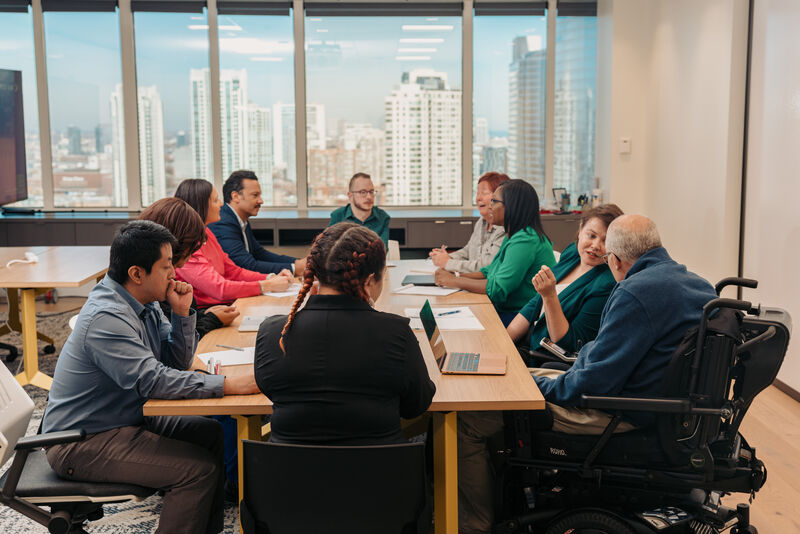
Disability often suggests visible differences, but many disabilities are not immediately apparent. These "non-obvious" or "invisible" disabilities can include conditions like chronic pain, mental health conditions, chronic fatigue, autoimmune disorders, and neurological differences. Recognizing and understanding these conditions is crucial for creating truly accessible workplaces.
What are Non-Obvious Disabilities? Non-obvious disabilities are medical or mental health conditions or diagnosis that are not outwardly visible. This can sometimes lead to misunderstandings or a lack of support, as people may not realize an individual is living with a disability. For example, someone with chronic fatigue might struggle with energy levels that aren't noticeable to their colleagues, or an individual with anxiety might find certain social situations at work challenging without others realizing the underlying reason.
The Importance of Disability Etiquette - Good disability etiquette is essential for interacting respectfully with all individuals, especially those with non-obvious disabilities. Since you can't always tell if someone has a disability, it's best to always be respectful and empathetic. Here are a few key points:
- Ask Before You Help: Don't assume someone needs help. Offer assistance but wait for your offer to be accepted before acting.
- Respect Personal Space and Equipment: A person's assistive devices, whether a cane or noise-canceling headphones, are part of their personal space.
- Communicate Clearly: Speak directly to the person with the disability, not to their companion or interpreter.
- Be Mindful of Language: Use person-first language (e.g., "a person with a disability" instead of "a disabled person"). Avoid outdated or offensive terms. After getting to know a person, you can have further conversations to determine if the person prefers identity first language. Each person will have a personal preference.
- Confidentiality: Respect an individual's privacy regarding their disability. It's their information to share if and when they choose.
By practicing good disability etiquette, we promote an environment where everyone feels valued and respected, regardless of their obvious or non-obvious differences.
Employment and Non-Obvious Disabilities - For individuals with non-obvious disabilities, employment can present unique challenges and opportunities. Many people with non-obvious disabilities are capable and contribute significantly to the workforce. However, they may require specific accommodation or understanding from employers to thrive.
Employers can play a vital role by:
- Promoting Awareness and Education: Training staff in disability awareness, including non-obvious disabilities and proper etiquette, can break down stigmas and create a more understanding environment. Leah Lobato's team offers disability etiquette training for businesses. Utilize the resources and network of the Rocky Mountain ADA for training and support.
- Implementing Flexible Work Arrangements: Options like flexible hours, remote work, or modified duties can be crucial to accommodations.
- Focusing on Abilities: Emphasize what employees can do, rather than any perceived limitations.
- Creating a Culture of Open Communication: Encourage employees to discuss their needs without fear of judgment. This can lead to effective reasonable accommodations.
- Providing Reasonable Accommodations: This could include providing noise-cancelling headphones, periodic rest breaks, or regular check-ins with a supervisor.
The Rocky Mountain ADA Center or each state specific Business Relations team can assist with information on how to accommodate and support employees with disabilities. If you would like to contact your state's Business Relations team, please reach out to Leahlobato@utah.gov for an introduction.
The Business Relations team with The Utah State Office of Rehabilitation (USOR) is a resource for both individuals with disabilities seeking employment and businesses looking to create workplaces that are accessible. Reach out for training and support or to utilize the PWDNET (People with Disabilities Network) job posting listserv at pwdnetjobs@utah.gov.
By understanding non-obvious disabilities, practicing thoughtful etiquette, and implementing inclusive employment strategies, we can build workplaces that truly embrace full access and opportunity and allow all individuals to reach their full potential.
Leah Lobato is the Business Relations Coordinator for the Utah State Office of Rehabilitation, an ADA Coordinator (ADAC), and a member of the Rocky Mountain ADA Center Advisory Committee.